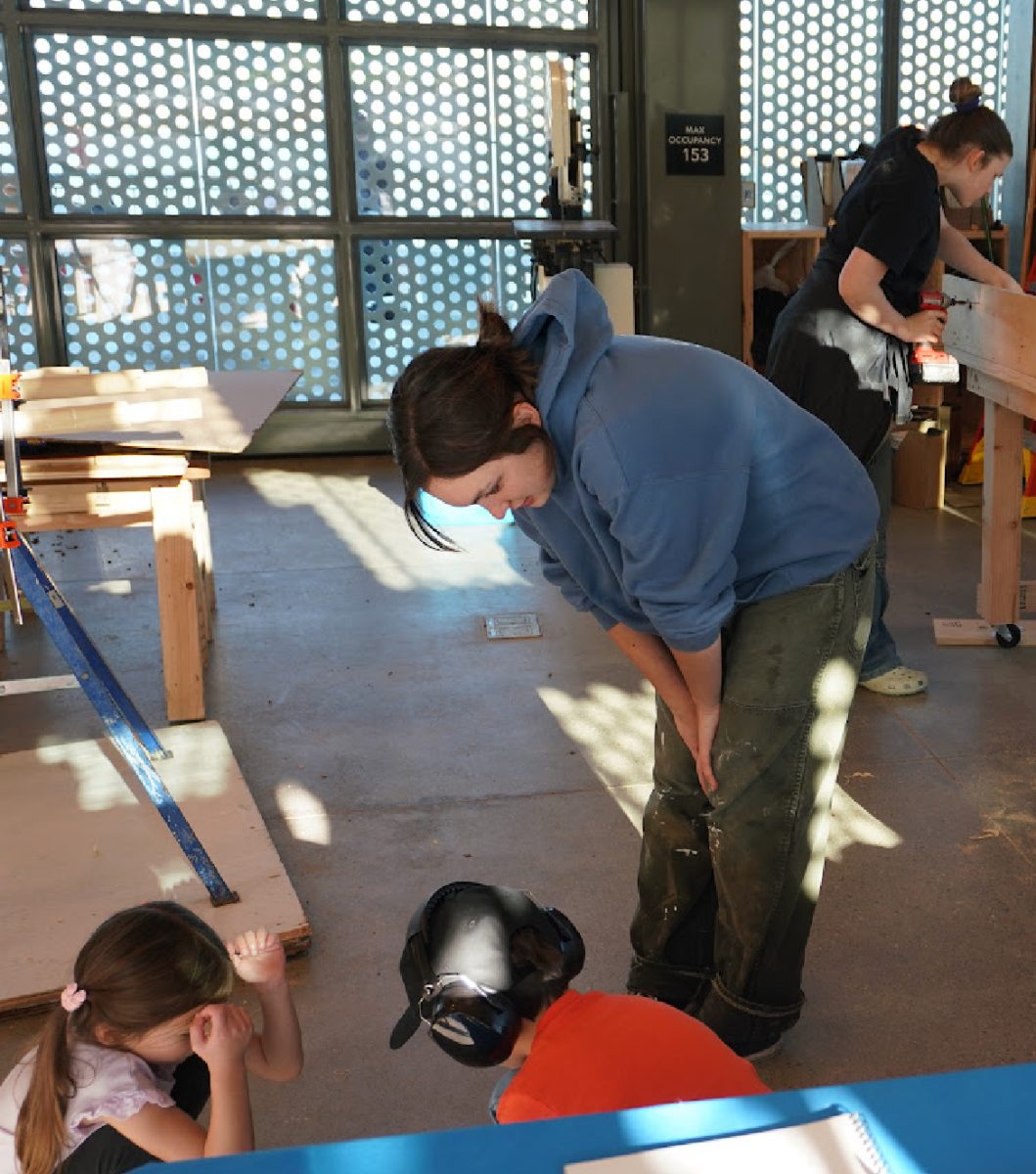Hannah Gould helps bounce back unwanted tennis balls
January 7, 2023

On a sunny day at the Corte Madera tennis courts, sophomore and varsity tennis player, Hannah Gould, prepared for a tennis match with her dad until she spotted old grocery bags packed to the brim with tennis balls. Discarded tennis balls are not unusual. Every year around 125 million tennis balls appear in landfill, according to the Columbia Climate School.
Hannah’s passion for tennis along with her devotion to sustainability inspired her to take action. At the beginning of the 2022 school year, she realized something needed to be done about the extreme waste of tennis balls, particularly in Marin.
“I would always see these brown bags filled with tennis balls, and I knew, ‘Oh, they are going to the landfill.’ They can be so wasteful — it’s just rubber — and after several uses, they are dead. So my dad and I did some research. We found a company, [a non-profit called Recycle Balls], that will send you boxes. You put the boxes on the court, and once they’re full, you send them off to the company for recycling,” Hannah said.
Dead balls are frequent for any avid tennis player. Marlies Zeisler, the girls’ varsity tennis coach, points out how Redwood’s tennis balls frequently end up in the landfill.
“In the past, we gave a bunch of [tennis balls] to the baseball team because during the rainy season, they can’t play on the field. So they play on the pavement with old tennis balls … instead of destroying their baseballs. [However, due to California’s drought] the boys on the baseball team didn’t need them, so we put them in the garbage,” Zeisler said.

Once Hannah found a way to tackle unsustainable tennis ball waste, she contacted Larkspur and Corte Madera town officials. The officials were full of intrigue, prompting Hannah to facilitate meetings, presentations and more responsibilities unfamiliar to her.
“I’ve never written so many emails in my life. It was so much. And I had to learn how to write in a formal tone [because] I was in contact with a ton of officials in the town of Corte Madera. Then, I had to meet with them to propose my idea. That was scary,” Hannah said.
Officials eventually approved Hannah’s tennis ball recycling program in August, officially launching the project. According to her father, they collected 200 tennis balls in the first week with boxes throughout Marin.
“Currently we have boxes set up at Redwood, Piper Park, Centennial Park, the courts in East Corte Madera and Granada Park,” Larry Gould, Hannah’s father, said.
Alongside her enthusiasm and skill on the court, Zeisler commends the project-planning skills necessary for a feat like this.
“She’s been very thoughtful and resourceful to think about how not to waste all the dead balls because there’s quite a few. … [The tennis ball recycling system] is great all the way around,” Zeisler said.
Zeisler notes her commitment to emptying the bins, coordinating with various people, moving them before the rain, spreading awareness and keeping them in a good location. Hannah’s father sings similar praises.
“I’ve helped a little with keeping her on track, but it’s really Hannah’s project. … And it’s offering her good life skills, like business communications,” Larry said.

Despite its success, Hannah’s project faces challenges. Due to autumn rainfall, she lacks sufficient bins. And the boxes supplied by the company are made of cardboard, which are susceptible to the elements as much as reckless teenage behavior.
“Kids have been going on the courts and ripping open the boxes and taking balls out. But I’m still working on some more ideas. We’re going to try to get plastic weatherproof bins,” Hannah said.
Recycle Balls has plastic bins in the works without an official release date, making it difficult for Hannah to decide the best long-term approach.
“They are in the process of making sturdy baskets, which look great, and hang on the fence. … So we can either wait for them, or, we’ve researched a few we think might work better,” Larry said. “But even with plastic, people might mess them up. So we’re kind of waiting right now with the cardboard box.”
The biggest problem Hannah and Larry face is funding. The company charges $200 for 10 cardboard boxes. Hannah utilized Go Fund Me accounts to collect donations for her cause and posted weekly on social media and NextDoor to spread the word.
“We’re not in debt anymore because we’ve raised $400. And we’ve got around 20 bins. We’re working on a more sustainable [and money-conscious] way to do this, [like with reusable bins, not cardboard]. We can’t make $200 every couple of months for new bins,” Hannah said.
Even with the hardships, her dedication pays off.
“It’s fun to drive around and pick up the boxes once they’re full. And it’s satisfying to see all the filled boxes in my garage right now that we’re going to ship off. I can’t wait to see where this project goes,” Hannah said.
Click here to donate to Hannah’s Go Fund Me!







